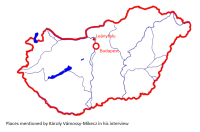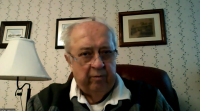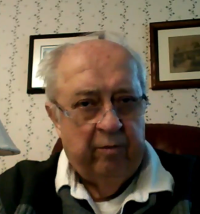„You know what you have to do, I know what I am going to do“

Stáhnout obrázek
Charles Mikecz Vámossy was born in 1941 in Budapest. He came from an intellectual family both on his father‘s and his mother‘s side: teachers and diplomats were among his ancestors. Thus, after the communist takeover, they had to live as ‚class aliens‘: Károly had difficulty getting into high school, his father worked as a night doorman, and his grandparents were deported. Finally, he emigrated with his father in 1956 to the USA, where he started a family. He currently lives in New York State and has two children (and several grandchildren).


